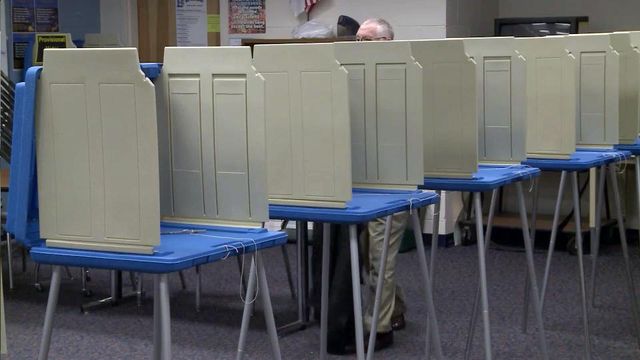Early primary could cost NC Dems, GOP
All 300 members of county election boards across North Carolina underwent training in Cary Wednesday, and the recent changes to the state's voting laws made that training more complicated than usual.
Posted — UpdatedEach of the 100 county election boards has three members, and by custom, the majority on each is from the same party as the governor. Because Pat McCrory is the first Republican governor in more than two decades, there's been a lot of turnover on county boards.
"About half of them are new to their board and have not previously served on a board," said Josh Howard, chairman of the State Board of Elections. "There's a lot of rules for that – open meetings laws, limits on political speech and activity – and so we're here to remind them and educate them as to those obligations."
They're also struggling to absorb all the changes lawmakers made to election laws this summer, from the voter identification requirement to mandating paper ballots. Counties that use electronic voting will have to buy all new machines.
The new law also gives North Carolina two primary elections in presidential years. The presidential primary will move up to February in 2016, while the rest of the primary will continue to take place in May.
The change will cost counties more money, although Howard couldn't say yet how much. It also could cost both the North Carolina Democratic Party and the North Carolina Republican Party delegates to the national nominating conventions.
Both parties have fairly strict rules about primary dates for different states and the order in which they're held, and they penalize the state parties when those primary rules are broken.
"Ultimately, it's not for us as board members to have opinions as to the merits of any of these moves," Howard said of the raft of changes to the state's election laws. "It's for us to implement them. We're given the law by the legislature and the governor. Some of these laws have been challenged in court, and they may be changed as a result of judicial ruling. We'll see how that goes, but once we know what the law is, we're going to implement it as it reads."
Copyright 2024 by Capitol Broadcasting Company. All rights reserved. This material may not be published, broadcast, rewritten or redistributed.





